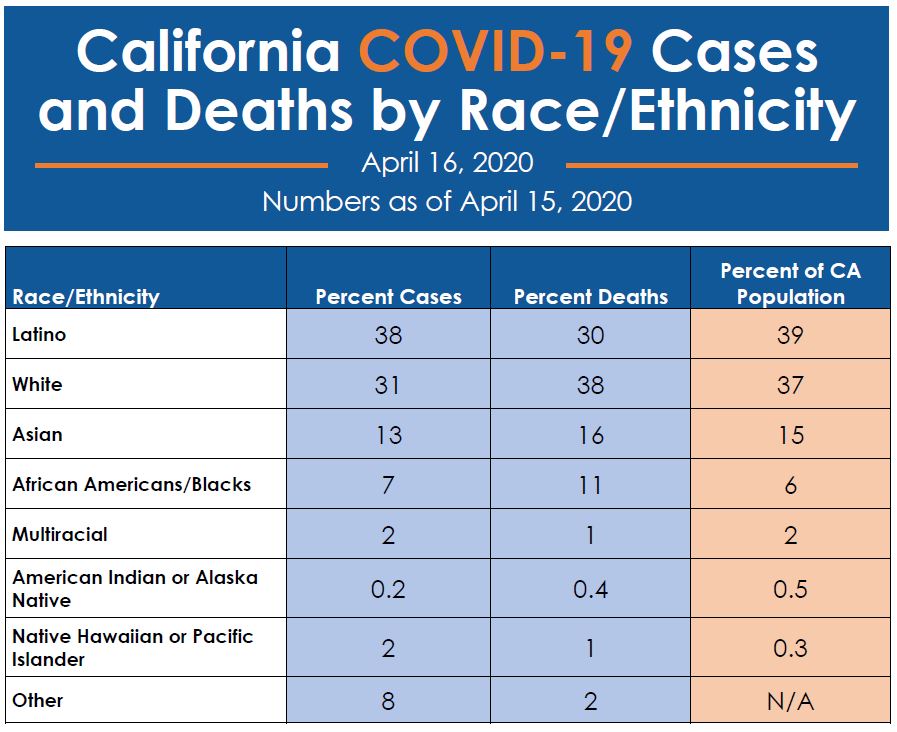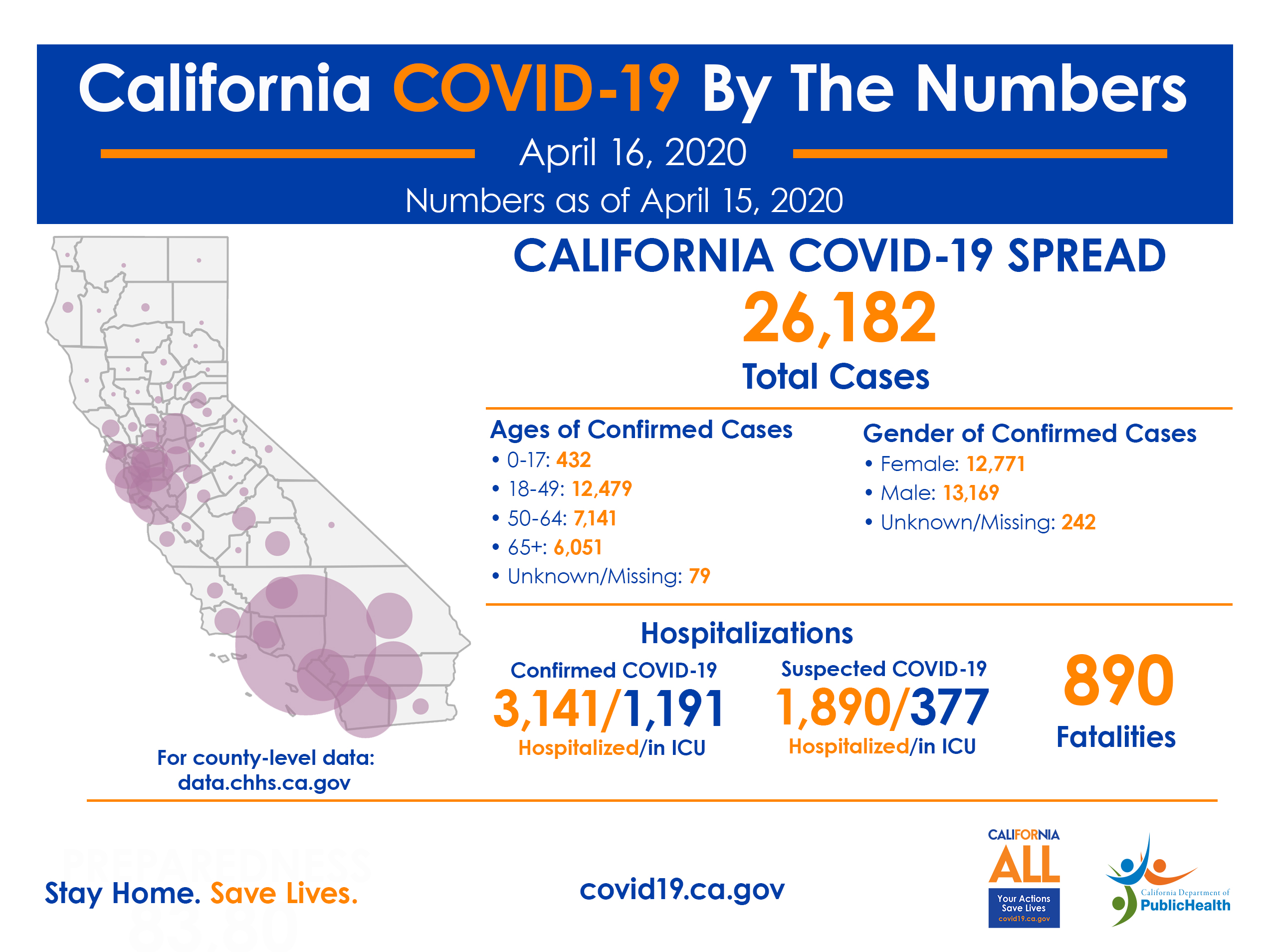State Officials Announce Latest COVID-19 Facts
Date: April 16, 2020
Number: NR20-055
Contact: CDPHpress@cdph.ca.gov
SACRAMENTO – The California Department of Public Health today announced the most recent statistics on COVID-19. California now has 26,182 confirmed cases and 890 deaths.
Racial Demographics – A More Complete Picture
As of April 15, data on race and ethnicity is complete for 65 percent of COVID-19 cases and 87 percent of deaths reported to the California Department of Public Health. As testing expands and our work to get more complete information by race and ethnicity advances, the distribution by race and ethnicity for cases may change. As information on race and ethnicity is becoming more complete on reported deaths, our data shows that African Americans/Blacks represent a disproportionately higher number of deaths compared to their representation in California’s population. Another group of heightened concern are Native Hawaiians or Pacific Islanders, although the number of deaths in this population are small and therefore limits statistical comparison.

Health Care Worker Infection Rates
As of April 15, local health departments have reported 2,974 confirmed positive cases in health care workers. This includes on-the-job exposures, and other exposures, such as travel and close family contact. As testing capacity continues to increase, and more tests are being conducted directly in physician’s offices and processed through commercial laboratories, local public health officials will not be able to report the source of exposure for every affected health care worker.
Testing in California
As of April 15, more than 246,400 tests had been conducted in California. At least 239,181 results have been received and another 7,200 are pending. These numbers include data California has received from commercial, private and academic labs, including Quest, LabCorp, Kaiser, University of California and Stanford, and the 22 state and county health labs currently testing.

How People Can Protect Themselves
Every person has a role to play. Protecting yourself and your family comes down to common sense:
- Staying home except for essential needs/activities.
- Practicing social distancing.
- Washing hands with soap and water for a minimum of 20 seconds.
- Avoiding touching eyes, nose or mouth with unwashed hands.
- Covering a cough or sneeze with your sleeve, or disposable tissue. Wash your hands afterward.
- Avoiding close contact with people who are sick.
- Staying away from work, school or other people if you become sick with respiratory symptoms like fever and cough.
- Following guidance from public health officials.
What to Do if You Think You're Sick
Call ahead: If you are experiencing symptoms of COVID-19 (fever, cough or shortness of breath) and may have had contact with a person with COVID-19, or recently traveled to countries with apparent community spread, call your health care provider before seeking medical care so that appropriate precautions can be taken.
For more information about what Californians can do to prevent the spread of COVID-19, visit Coronavirus (COVID-19) in California.
California continues to issue guidance on preparing and protecting California from COVID-19. Consolidated guidance is available on the California Department of Public Health's Guidance web page.